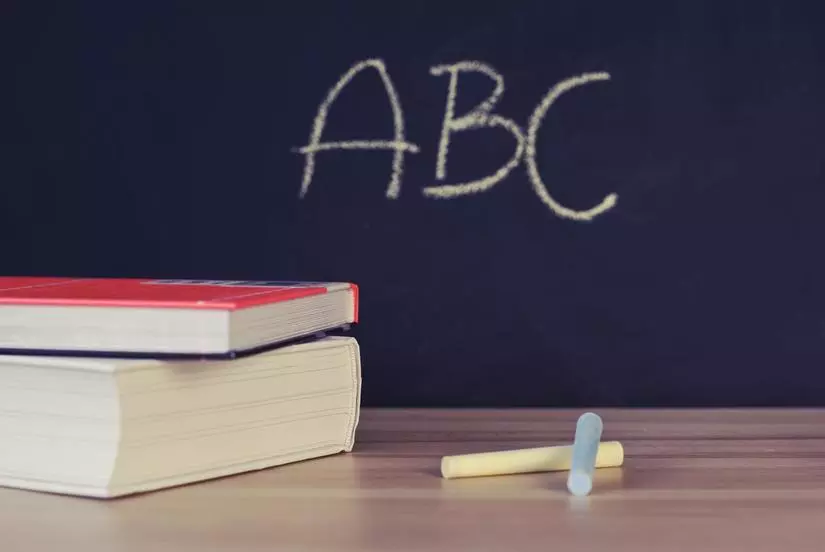The French Education System

Want to subscribe to a French energy offer?
Our English-speaking Selectra advisors are here to help you find the right energy plan.
(foreign IBANs accepted) at [email protected]. You can contact us also:

The French school system is highly regarded around the world, and as long as you’re a French resident, it’s easy to enroll your child into the system.
Here’s everything you need to know about education in France.
An overview of the French school system

Children of French residents are entitled to free education, but costs for things such as class trips, books and school supplies are left up to the parent or guardian.
If you’re looking for some extra assistance, consider applying for allocation de rentrée scolaire (ARS), a grant that helps with schooling costs for children.
You can find out more on the Caisses D’Allocation Familiales (CAF) website here.
School in France is mandatory for children aged six to 16. However, many children enter preschool at age three and continue their education until they are 21.
Classes mix both sexes and typically do not require uniforms. The average class size is 30 students. Children are placed into classes based on birth year, regardless of which month they were born in said year.
Types of schools in France
Most children attend public schools in France (écoles publiques), which are free. Enrolling your child in a French school will better integrate them into French society and help them learn the French language faster. However, this may be difficult for some children if they are older.
French schools will teach everything in French unless stated otherwise, including tests. Children are expected to maintain at least a 50% average (or 10 out of 20, as marks in France are usually scored on a 0 to 20 scale).

If you’ve just moved from an American school system, for example, and are looking for a bilingual school, there are many international schools in France that can help.
Some of these fall under private schools in France (écoles privées) and are independent from the government (hors contrat), meaning they receive no money from the state. With that in mind, if you’re looking into enrolling your child in an international school, there will likely be a tuition fee and the curriculum and school holidays may differ from the French state curriculum. Many international schools also offer the International Baccalaureate (IB) program.
There are also private schools that are under contract (sous contrat) to the French government. This means that the schools follow the French state curriculum, the fees are low and the teachers’ salaries are paid by the government.
In 2015, the French government published a reform that allows schools to set 20% of the curriculum themselves.
Special needs schools
You can find out more information about special needs schools in France by visiting SESSAD (services d’éducation spéciale et de soins à domicile). The schools differ depending on the region.
Homeschooling

You can choose to homeschool your child in France. But in order to do so, you have to be able to cover the same subjects taught in the French curriculum and at the same level.
You must make an annual declaration at your local town hall (mairie) and rectorat (school board). You will also be inspected by the school board every year to ensure you are teaching properly and inspected by the mairie every two years.
If they decide your homeschooling is inadequate, you may have to send your child back to school.
Enrolling your child in the French school system
Contact the service des écoles at your local mairie. Once you register your child there, you will be handed a certificate d’inscription which you can pass on to the school of your choice in order to enrol.
You must register your child in a school that's in your neighbourhood.
If you are living in Paris with a child six or under who does not speak French, they may be sent to the mairie for basic French classes before enrolling into school.
If you’re looking to enrol your child in middle or high school (a collège or lycée), you must contact the school directly. If your child is enrolling for the first time and is not from France, you will also need to contact the education authority in your area (inspection académique, service de la division des élèves, or rectorat). Your child may also need to take a French-language test.
The different levels of the French school system
Your child's age will decide where they will be enrolled within the French school system. There are two compulsory levels of education, as well as the French equivalent of preschool, high school and higher university education.
Preschool (école maternelle)
This is not compulsory in France, but parents often enrol their children here so as to understand basic reading, writing and math, as well as learn general social skills. It is a good way for foreign children to start learning French.
These facilities are free, paid by the state. They take in children from two years old until they are six.
Primary school (école primaire)
This is compulsory in France. Children attend at six years old until they are eleven. You must register your child by June of the upcoming school year in order for them to attend in September.
There are five levels within école primaire:
- Cours préparatoire (CP) or 11ème – 6 to 7 years old
- Cours élémentaire (CE1) or 10ème – 7 to 8 years old
- Cours élémentaire (CE2) or 9ème – 8 to 9 years old
- Cours moyen 1 (CM1) or 8ème – 9 to 10 years old
- Cours moyen 2 (CM2) or 7ème – 10 to 11 years old

Children learn literacy, math and history, among others. They also typically learn a foreign language such as English. Primary schools often close for all or part of Wednesdays.
If your child needs to repeat a year (redoubler), it is usually suggested at the end of one of these levels. It is common in France to repeat years, so it is nothing to worry about if your child needs to do so. The decision can sometimes be determined by conseil de cycle, a group of schoolteachers and directors. However, parents can appeal these decisions.
If your child did not attend a preschool in France, you will need to apply to your primary school of choice through your local mairie. You will need:
- Your child’s birth certificate
- Proof of residency in France
- An updated vaccination record/certificate
Middle school (collège)
This is compulsory in France. Children are enrolled once they leave école primaire at 11 years old and attend until they are 15. You must register your child by June of the upcoming school year in order for them to attend in September. There is no entrance exam to enter. Collège aims to give students a broad education, so students take classes such as math, French, history, art, music and science.
There are four levels within collège:
- 6ème – 11 to 12 years old
- 5ème – 12 to 13 years old
- 4ème – 13 to 14 years old
- 3ème – 14 to 15 years old
Children are given tests every week and must pass the year with an average of 12 marks out of 20. If a student scores underneath 10 marks, they may need to repeat the year.

When students have completed four years of collège, they must take the brevet, or Diplôme National du Brevet (DNB). This tests students on French, math and history or geography. Students must also pass a computer/internet skills assessment (B2i) and have reached level A2 in a foreign language. The brevet also takes into account the students’ general behaviour throughout their last year of collège. Students must achieve 10 or more marks out of 20 to pass.
After the brevet, and if they are 16, students have the option to leave school. However, most continue on to a lycée. They have the choice between a lycée general, a lycée technique or a lycée professionnel.
Students must study for two years after they finish collège (in a lycée, through private studies or otherwise) in order to sit the baccalauréat exam, which allows them to enter university.
High school (lycée)
There are three levels within a lycée:
- Seconde (CAP, BEP) – 15 to 16 years old
- Première (CAP, BEP) – 16 to 17 years old
- Terminale (BAC) – 17 to 18 years old
Students take the same set of eight or nine core subjects but can choose three electives and a creative workshop. At the end of their last year, students choose which baccalauréat (le bac) to pursue in order to enter university.
In a lycée general or lycée technique, students take le bac and choose between the L series (literary studies), ES series (economic and social studies) or S series (science series). For a baccalauréat technologique, students can take le bac for things such as health and social sciences (STSS), music and dance (TMD) or science and laboratory (STL), among others.
In a lycée professionnel, students are looking to obtain credentials to get a manual or clerical job or pursue further studies.
University
For more in-depth information about University in France, visit this other dedicated page.
The French school year
School in France starts in September and ends in June. Summer holidays run from July to August. There are also several breaks within the year, such as Christmas break, mid-winter break and other holidays. School holidays differ depending on the school and region. You can find out more about the French holiday schedule here.

Classes typically start at 8:30 am and end at 4:30 pm. Lunch ranges from an hour and a half to two hours. A school lunchroom, or cantine, will usually offer a starter, meal and dessert. The meal needs to be signed up for separately and the costs vary between schools.
There are also two breaks within the day (récré). After school, students can go home with their parents’ permission or attend after school study lessons. Some schools close on Wednesday afternoons.
Childcare services are offered for parents or guardians who cannot attend to their children after school right away. The service de puériculture is also available before school and during vacations. However, it is separate from the school and charges a fee.